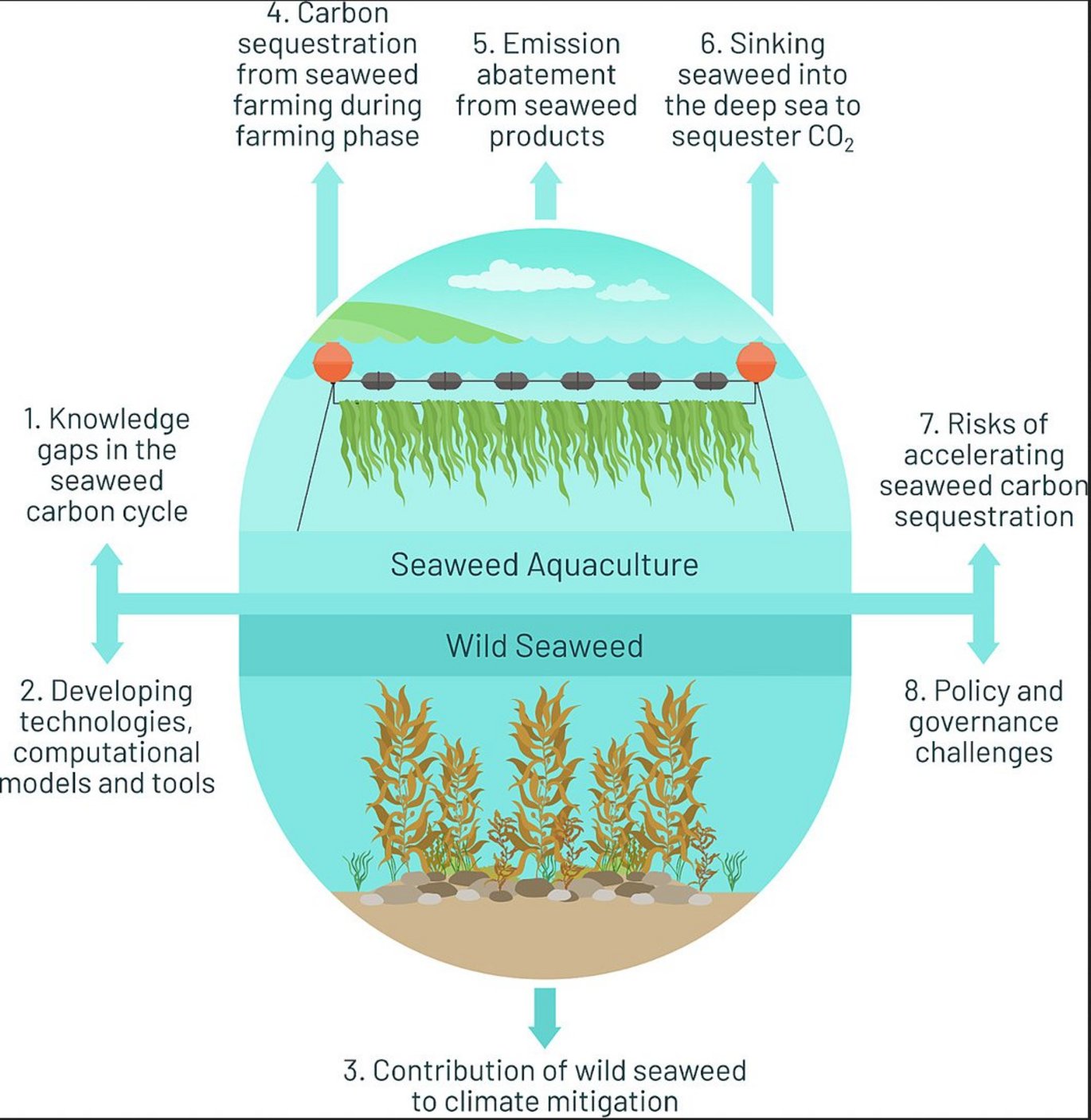Potential role of seaweeds in climate change mitigation
New publication by Ross, Finnley W.R. ; Boyd, Philip W. ; Filbee-Dexter, Karen et al.

Abstract:
Seaweed (macroalgae) has attracted attention globally given its potential for climate change mitigation. A topical and contentious question is: Can seaweeds' contribution to climate change mitigation be enhanced at globally meaningful scales? Here, we provide an overview of the pressing research needs surrounding the potential role of seaweed in climate change mitigation and current scientific consensus via eight key research challenges. There are four categories where seaweed has been suggested to be used for climate change mitigation: 1) protecting and restoring wild seaweed forests with potential climate change mitigation co-benefits; 2) expanding sustainable nearshore seaweed aquaculture with potential climate change mitigation co-benefits; 3) offsetting industrial CO2 emissions using seaweed products for emission abatement; and 4) sinking seaweed into the deep sea to sequester CO2. Uncertainties remain about quantification of the net impact of carbon export from seaweed restoration and seaweed farming sites on atmospheric CO2. Evidence suggests that nearshore seaweed farming contributes to carbon storage in sediments below farm sites, but how scalable is this process? Products from seaweed aquaculture, such as the livestock methane-reducing seaweed Asparagopsis or low carbon food resources show promise for climate change mitigation, yet the carbon footprint and emission abatement potential remains unquantified for most seaweed products. Similarly, purposely cultivating then sinking seaweed biomass in the open ocean raises ecological concerns and the climate change mitigation potential of this concept is poorly constrained. Improving the tracing of seaweed carbon export to ocean sinks is a critical step in seaweed carbon accounting. Despite carbon accounting uncertainties, seaweed provides many other ecosystem services that justify conservation and restoration and the uptake of seaweed aquaculture will contribute to the United Nations Sustainable Development Goals. However, we caution that verified seaweed carbon accounting and associated sustainability thresholds are needed before large-scale investment into climate change mitigation from seaweed projects.
